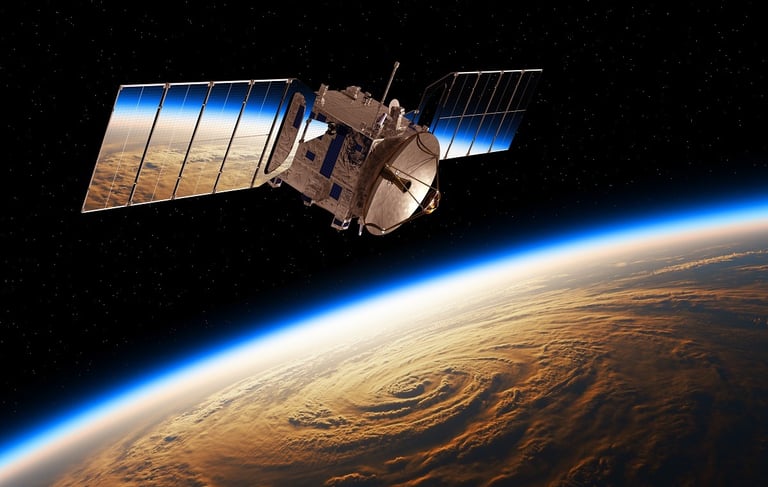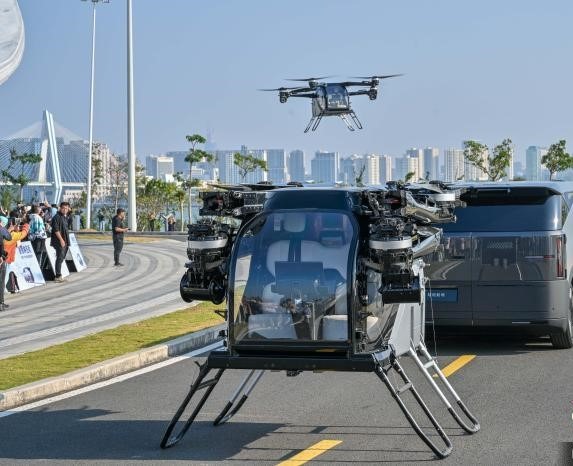AI in Space
Imagine a future where computers run by artificial intelligence (AI) pilot spaceships and explore space, but the benefits of such groundbreaking technology do not benefit millions of ordinary people. Similarly, imagine classrooms fill with children who, despite technological advances, are still educated using methods from the nineteenth century.
In 2023, Space x launched a satellite equipped with artificial intelligence (AI) technology that enables autonomous navigation, marking a significant step forward in the use of AI in space. This technology allows spacecraft to participate in deep space missions and demonstrates the growing synergy between AI, education, legal studies.


As a passionate enthusiast of space exploration and technology, I have always marveled at the wonders of the cosmos. From the breathtaking images of distant galaxies to the groundbreaking discoveries made by space probes, the realm of space has captivated the human imagination for centuries. In recent years, the development of space technology has accelerated, thanks in large part to the growing importance of coding. In this blog, I will delve into the significance of learning coding in the context of space technology, exploring how it fuels innovation, enables complex simulations, facilitates mission control, and fosters collaboration among scientists and engineers.
Coding lies at the heart of innovation in space technology. The ability to program software allows us to design and develop cutting-edge systems that power rockets, satellites, and spacecraft. With coding skills, we can optimize the performance of various space systems, improving efficiency, reliability, and safety. From designing sophisticated navigation algorithms to creating data processing algorithms for space-based telescopes, coding empowers engineers and scientists to push the boundaries of what is possible in space exploration.
Moreover, coding promotes a culture of innovation by enabling rapid prototyping and iterative development. With the ability to code, engineers can quickly test and refine ideas, fostering a creative and dynamic environment in which new concepts can be explored and refined. This iterative approach has proven invaluable in the space industry.
why AI is Important ..
While there has been a great deal of excitement over the possibilities raised by AI and space, educators must also be cognizant of the dangers posed by emerging technologies and trends. There is a need to bridge the growing digital divide that may harm academia and deprive ordinary people across the world from the benefits derived from space exploration and AI.
Artificial Intelligence and Its Role in Space Exploration
AI involves a wide collection of technological tools, such as machine learning (ML), that seek to simulate human functions that required human cognition in the past.


Your Functions in Techno-Space ?
These functions include:
Problem solving
Learning
Reasoning
Understanding and communicating in human language
Explaining how AI technologies can simulate human cognitive functions requires some understanding of nearly a century of experimentation into machine learning models and deep learning. However, it is safe to say that artificial intelligence now has the capability to complete complex tasks.
Artificial intelligence in many ways mimics human intelligence. For example, in the past, a scientist who wanted to analyze data needed to employ a team of other scientists to crunch the numbers, which took a great deal of time and effort.
However, AI tools now exist that enable scientists to analyze large amounts of data in seconds and provide interpretations of that data. For instance, the German Aerospace Center has used artificial intelligence to perform complex tasks like analyzing launch trajectories. As a result, artificial intelligence has saved significant time and effort for humans.


New Opportunities for students all around the world.
Germany 3 Neubrücke Street
Düsseldorf, North Rhine-Westphalia
Affiliated with Bayern Gate Foundation.
Technobayern
© 2025. All rights reserved.
